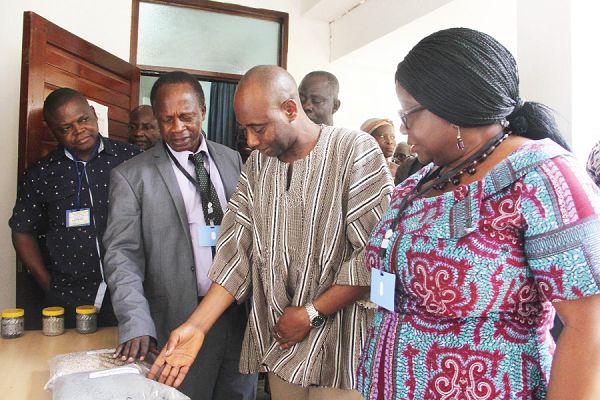
Agric platform launched to support farmers
A national agricultural innovation platform (IP) that brings farmers together to discuss issues related to poor soil fertility and general issues in the agricultural sector has been established.
The IP is a new concept which seeks to assemble major actors along the agricultural value chain to find organic resources to enrich soil fertility in the country and other parts of Africa.
Sege in the Greater Accra Region and Kade in the Eastern Region are the two selected project areas in Ghana from where about 40 farmers have been registered onto the IP, which is being implemented under the Organic Resources Management for Soil Fertility project (ORM4Soil).
The platform
Currently, the platform, being implemented in Ghana, Kenya, Mali and Zambia, with support from the Swiss government, is among other outcomes expected to address soil governance and influence the habits and attitudes of farmers and the general society towards agricultural sustainability.
It is also to provide recommendations to advisory services and farmer-based groups, the private sector and policy makers for a better adoption of soil fertility management practices.
Workshop
A workshop to discuss the IP and other related matters was held at the West Africa Centre for Wetlands at the University of Ghana last Thursday, which brought together 20 each of the IP farmers from Kade and Sege and other IP representatives.
It was on the theme: “Addressing Agricultural Challenges through Innovative Platforms”.
Minister opens
A Deputy Minister of Food and Agriculture, Dr Sagre Bambangi, said the country was in an era where increased population pressure, together with other factors, had resulted in reduced fallow periods and inappropriate land use.
“Limited use of fertilisers in agriculture has also exacerbated the already negative nutrient budget of most of the soils which are of low inherent fertility,” he stated.
He cited statistics from the Soil Research Institute establishing that most soils in the country had low organic matter content, with more than 68 per cent of the soils having low concentration of nitrogen.
Dr Bambangi, who is in charge of annual crops, added that trends in production of major food crops such as maize, rice and sorghum had stagnated on-farm productivity which posed a serious challenge to Ghana’s food security and income growth.
Declining soil
The National Coordinator of the project, Prof. Kwabena Ofosu-Budu, said soil fertility was declining globally, especially in the tropics, which called for urgent attention.
He proposed the use of other organic resources to replenish the soil, especially when those resources were within the reach of the farmer.
He said the project started three years ago with three areas – agronomy, communication and socio-economy.
Prof. Ofosu-Budu expressed the hope that the IP farmers from the two localities would be able to share ideas and exchange their experiences in the use of organic resources to improve their farms.
Writer’s email: [email protected]